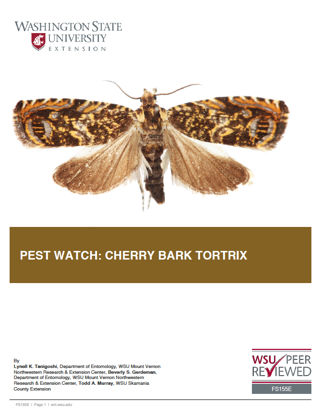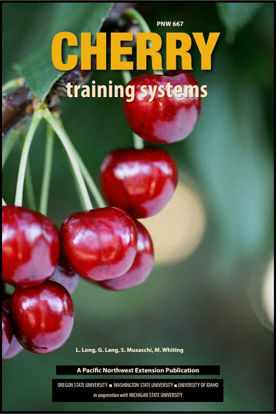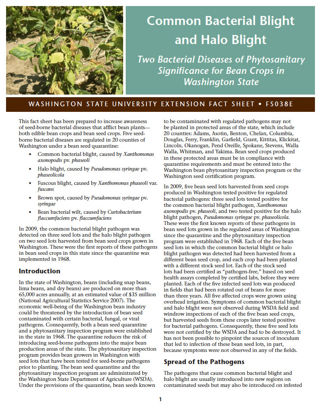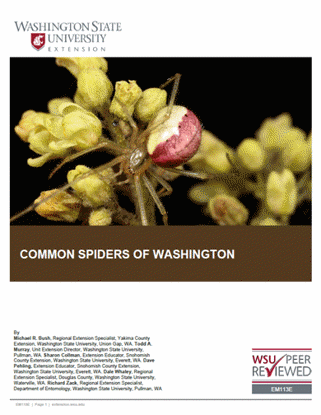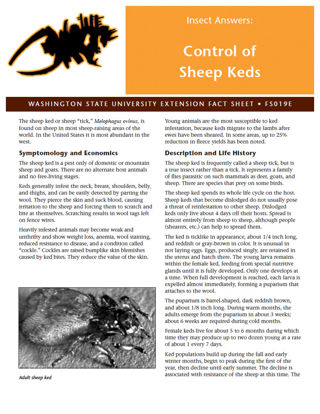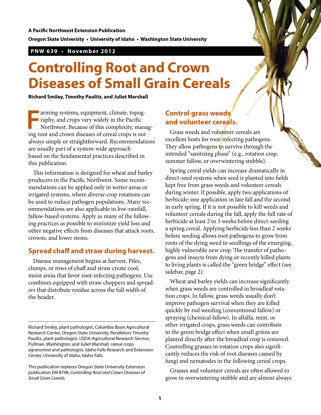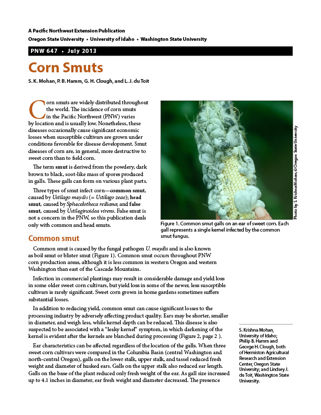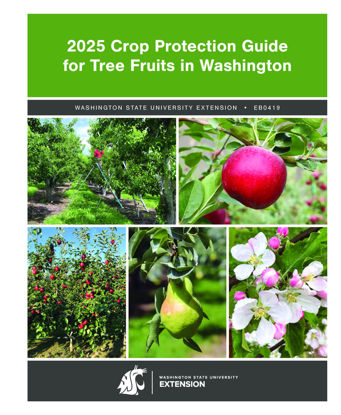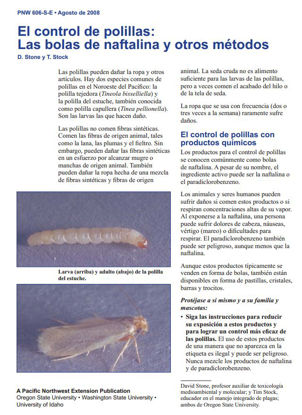You have no items in your shopping cart.
Pests, Plant Diseases, and Weeds
Pests and Plant Diseases
Cherry Bark Tortrix Enarmonia formosana (Home Garden Series) Replaces EB1893
Cherry bark tortrix, Enarmonia formosana (CBT), is a major invasive pest of many shrubs and trees, especially those in the Rosaceae family. The larvae of this broad-winged moth are bark borers whose ...
$0.00
Cherry Training Systems
Describes the seven major pruning systems used in commercial cherry tree orchards in Oregon, Idaho, Washington, and Michigan. Includes overall goals and critical steps for major stages within each.
$0.00
Common Bacterial Blight and Halo Blight: Two Bacterial Diseases of Phytosanitary Significance for Bean Crops in Washington State
This fact sheet has been prepared to increase awareness of seed-borne bacterial diseases that afflict bean plants—both edible bean crops and bean seed crops. ...
$0.00
Common Spiders of Washington (Replaces EB1548)
Spiders are commonly found in the Pacific Northwest. These photos and descriptions of common varieties should ease fears over encounters in darkened hallways. ...
$0.00
Control of Sheep Keds
The scientific name of the sheep ked, or tick, is Melophagus ovinus. This pest affects the health of domestic or mountain sheep and goats, causing damage to skin and wool, in some cases up to a ...
$0.00
Controlling Root and Crown Diseases of Small Grain Cereals
This publication describes fundamental practices to manage and minimize losses from root and crown diseases of wheat and barley grown in the Pacific Northwest. Includes tables that list the hosts, ran ...
$0.00
Corn Smuts
Two types of smut attack corn in the Pacific Northwest: common smut and head smut. This publication provides descriptions of symptoms, the disease cycle, and management strategies for each. Significa ...
$0.00
Crop Protection Guide for Tree Fruits in Washington
ATTENTION: 2025 guide available now! This publication outlines examples of pesticides registered on orchard insect, disease, and weed pests in Washington State. Efficacy and toxicity charts.
$27.00

